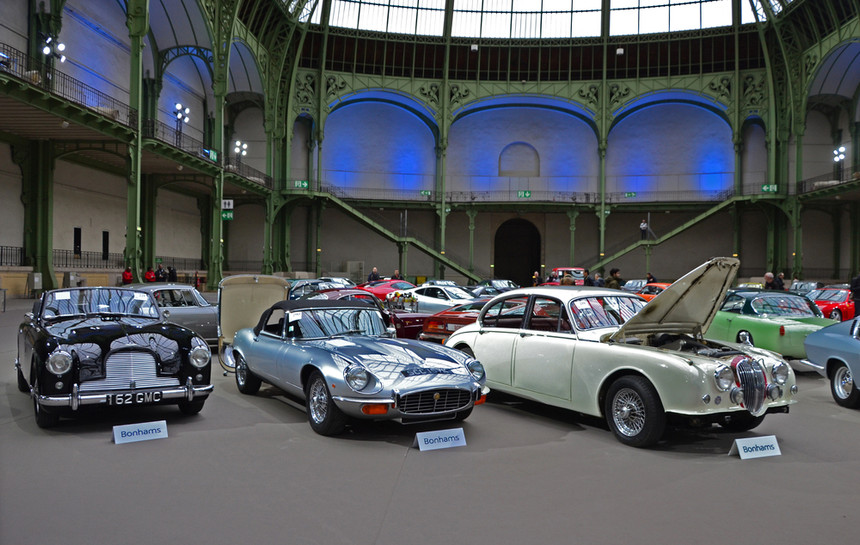There are a few events that tend to hold major importance for many in the classic car world, and auctions are some of the top examples here. Classic car auctions represent a great opportunity to either find a classic vehicle for a good price or get great value for your vehicle, and preparing properly for them is necessary if this is one of your primary avenues.
At Andersen Restoration Parts, we're here to assist classic car owners with all their restoration needs, whether before selling a car at auction or after just having purchased one. We offer every kind of restoration part you might require, from suspension rebuild kits to idler arms, joint rebuild kits and more. In this two-part blog series, we'll go over some general tips for classic car auctions; today's part one will focus on auctions where you're a buyer and looking for one or more vehicles to add to your collection, while part two will go over auctions where you plan to sell one or more vehicles.
Budget Considerations
Well before you ever set foot at a classic car auction, it's important to know what your budget is for each vehicle you plan to buy. Having begun researching vehicles you might be interested in well in advance of the auction date will help here; get a general idea of the market value for any vehicles you're looking at and use that as a basis for setting your maximum spending amount.
Another key consideration within this is also the restoration costs involved. You'll need to factor in any parts or labor that might be necessary for a proper restoration, so make sure you have an accurate budget set and align it with what you're willing to pay.
Research Your Options
As noted above, research ahead of time is key for finding good vehicles at classic car auctions. This involves researching the market value for vehicles you might be interested in, but also taking a look at available sources of information and reviews on those cars from other enthusiasts.
Without proper research, you put yourself at risk of overpaying for a vehicle you won't be entirely happy with. Make sure to also take into account the potential need for any additional restoration work that might come up shortly after acquisition.
Classic Car Boards or Other Resources
While performing said research, make sure to check out a variety of sources for information. Classic car boards and forums are great resources here, with plenty of experienced enthusiasts who can provide you with useful advice or tips if needed. Additionally, many classic car auction houses may have their own catalogs of available vehicles where you can review specs and prices before attending the event itself.
As you're browsing these sources, don't hesitate to reach out to others whenever you need some extra advice; many classic car enthusiasts are more than happy to help another in any way they can.
Thorough Vehicle Inspections
Some might feel that this section goes without saying, but it's still important to emphasize. Ensure you do a thorough inspection of any vehicles you're interested in, inside and out, before deciding to bid on them.
Take a look at the vehicle's condition and ask questions regarding its past; this includes asking about all repairs and maintenance done on the vehicle as well as its history of ownership over time. If possible, test drive the vehicle to ensure it functions properly (if not, inquire about any potential problems).
Day-Of Tips
Finally, here are a few basic day-of tips for those attending classic car auctions to buy a vehicle:
- Always be on-time: Available selection is a huge factor at these events, and those who arrive early can often have the best chances of finding great vehicles. If you're late, you're likely to miss several auctions - and you will have no chance to change the bid prices.
- Always prepare to bid: Before auction day, make sure you know what your maximum spending limits are on each vehicle. Make a list of all vehicles you're interested in and their respective prices; this will help you stay organized and avoid any last-minute confusion or complications.
- Know auction rules and regulations: Various auctions may have their own unique rules and regulations, so make sure to read up on these well before the event. This will help you better understand the process and avoid any problems while bidding.
- Don't be afraid to ask questions: Feel free to approach the auction house staff before or during the auction if there are any details that aren't clear to you.
For those looking to buy a classic car at an auction or any type of market, these tips should help make the process smoother and more enjoyable. With enough research, preparation and knowledge, you could have an excellent chance of finding great deals and worth vehicles for your collection. Good luck!
And at Andersen Restoration Parts, we offer a great selection of classic car parts to help you restore your vehicle. Be sure to check us out!

